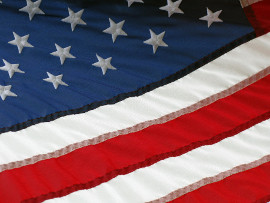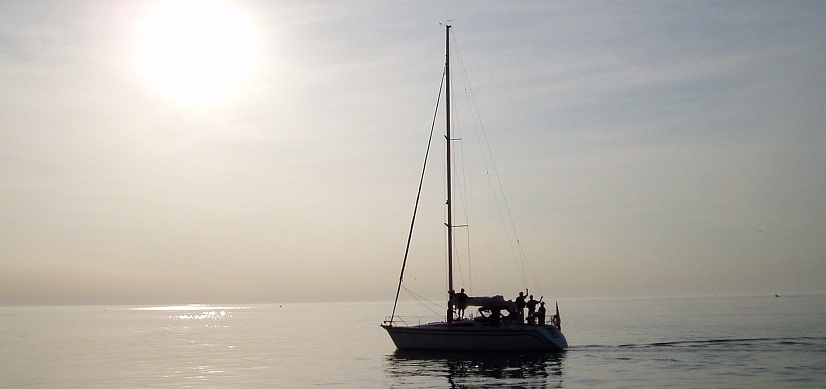All entries for May 2013
Boating Safety Tips for Memorial Day
5 Safety Tips for a Safe Memorial Day Weekend1. Always Wear a Life Jacket. Life jackets aren't called "life jackets" for no reason. Always be sure to wear yours and make sure that all young children are equipped as well. We recommend life jackets that have been certified by the U.S. Coast Guard. 2. Have A Plan. It's best to know where you will be in relation to land and other important navigational landmarks, always being able to keep your sense of direction. Currents often cause boats to veer off course and can be troublesome if you're not properly prepared. 3. Forget the Alcohol. The majority of boat accidents are alcohol related, so leaving the cooler on land is not only a good idea, but a life saving opportunity as well. Always be responsible when drinking alcohol. 4. Tell People Where You're Going. Let friends and family know where you'll be planning on boating for the day and what time they should expect you back. They'll be able to call for help in the event of a break 5. Inspect the Boat Prior to Launch. Be sure to give your boat a thorough inspection to make sure that everything is in good working condition. Be sure to have an extra fuel supply on board and all necessary survival items such as signal flares and an inflatable life raft. Remember, it's always better to be safe than sorry. Keep these safety tips in mind and enjoy a fantastic Memorial Day weekend. We'll see you on the water! 
15 Basic Boat Terms
15 Boating Terms You Should KnowStarboard, Aft, What?Before venturing out into open waters, it's important to have a basic understanding of common boat terms associated with the positions and directions of your boat. To the uneducated ear, even the simplest of boating terms can sound like a second language. Knowing these terms will make it easier to communicate with people aboard the boat as well. We want to make sure that you have the best experience possible on your boating journey, so here's our list of 15 basic boating terms. Common Boating Terms1. BowRefers to the front end of a boat. (You can remember "bow" as the front, because when you take a bow, you're leaning forward.) 2. SternRefers to the rear end of a boat. 3. ForwardWhen you are moving towards the front end of a boat, this called going "forward." 4. AftWhen are you moving towards the rear end of the boat, this is called going "aft." 5. UnderwayWhen a boat is moving, either by motor or wind, this is called being "underway." 6. AheadRefers to a boat moving in a forward direction. 7. AsternRefers to a boat moving in a backwards position (reverse). 8. PortStanding at the rear of a boat and looking forward, "port" refers to the entire left side of the boat. 9. StarboardStanding at the rear of a boat and looking forward, "starboard" refers to the entire right side of the boat. 10. Port BowRefers to the front left of a boat. 11. Port QuarterRefers to the rear left side of a boat. 12. Starboard BowRefers to the front right of a boat. 13. Starboard QuarterRefers to the rear right of a boat. 14. AmidshipsThe central part of a boating vessel. 15. TopsideMoving from a lower deck of a boat to an upper deck. Arm yourself with these basic boating terms and enjoy the peace of mind of a safe boating trip not only for yourself, but your passengers as well. These boat terms come in very handy when speaking with dock staff and also any communications regarding the U.S. Coast Guard. With a little practice and some memorization, you'll be speaking the boating lingo in no time. Here's to happy boating! Have more terms to share or questions about boating terms? Let us know by leaving your comment below.
Top 10 Boating Tips - What You Need To Know!
Top 10 Boating Tips from Wave's Boat and Social Club
The sun is shining, the weather is beautiful and the mood is perfect for a day out on the water with family and friends. However, before you depart to enjoy your boating trip, it's important to remember that safety should always come first. At Wave's Boat and Social Club, boating safety is a top priority for us and we make sure all of our members have a firm understanding of the rules and regulations regarding boat safety and preparation. Here's our list of the top 10 boating safety tips to ensure a safe and happy journey!#1. Know the WeatherAlways be sure to check the weather forecast prior to leaving the docks. In Sarasota especially, the weather can be quite unpredictable so it's extremely important to have knowledge of tides, currents, sunrise and sunset times and also any small craft advisory warnings. #2. Have a Pre-Departure ChecklistPerhaps the most important boating tip, having a checklist of mandatory items before departing will help you be prepared for any situation on the water. Items to keep in mind include fuel levels, fire safety equipment, personal flotation devices, flashlights, batteries, emergency flares and of course, don't forget the sunscreen! #3. Understand and Abide by Boating Safety and Navigational RulesIt's important to have a clear understanding of boating safety and navigational rules, including how boating instruments work, how to read boat speed and navigational signs and areas where boating is restricted. Failure to comply with boating laws could result in further penalties. #4. Always Wear a Life JacketWhile they may not be the most fashionable items, wearing a suitable flotation device could mean the difference between surviving a boating accident or not. In fact, the majority of boating fatalities have been a result of people not wearing life jackets. Young children especially should have life jackets that fit properly, as well as adults. #5. Don't Drink and BoatMuch like you wouldn't drink and then drive a car, boating and alcohol do not play well together. In 2009, 16% of all fatal boating accidents were a direct result of alcohol consumption. Be smart and leave the bottles on land. #6. Use Common SenseCommon sense is one of the most important boating tips that we can give you. Use your brain and understand that a boat is a big, heavy object and can cause damage just like any other vehicle. Be aware of "No Wake" zones and designated Manatee zones. Be sure to steer clear of large rocks and stay out of shallow waters where sea grass and rocks can be abundant. Use your better judgment when on the water! #7. Have a Float PlanFrom the suggestion of the U.S. Coast Guard, it's always important to have a float plan, advising family, friends or dock staff where you're planning to go boating, how long you'll be out for and when they should expect you back. Try to make this a habit before any boat trip. Not only will it give you peace of mind, but also allows for the proper officials to be notified if you don't return from your trip when expected. #8. Learn to SwimBeing on the water, knowing how to swim should be no-brainer. Swimming is a vital skill not only for survival, but also in the event that you need to save someone who can't swim. Check out local organizations like the American Red Cross, who often have classes on proper swimming techniques for free. #9. Have the Proper DocumentationWhether you're renting a boat through a boating club or you own a boat, being prepared with the right documentation is a must. Documentation can include ship papers, radio license, fishing permit, etc. which should be on board at all times. #10. Familiarize Your GuestsAnyone who is planning on joining you for your boating adventure should be aware of the safety and emergency procedures, should a situation present itself. Before even leaving the dock, be sure that all guests understand what to do in an emergency situation and are able to operate the on-board communications, such as the radio and distress signals. Boating is an exciting and fun activity for the entire family, but you always want to make sure that safety is at the forefront of your adventures on the open water. Follow the boating tips for safety above and you'll be sure to have a great time boating, with no worries at all. We'll see you on the water! |
CategoriesArchives
Tags |







 Memorial Day
Memorial Day


